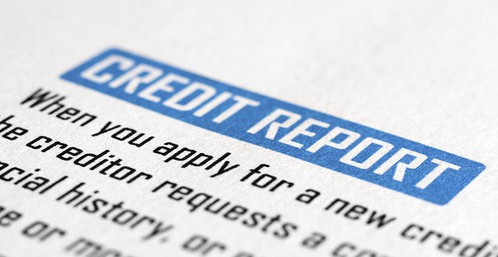Know the 3 basic facts about your credit reports.
If you have attempted to apply for a loan from the bank or simply getting a credit card, you may have heard of the terms credit history and credit scores. The lending industry uses your individual credit history and credit scores to determine whether they approve your credit card, loans and even mortgage.
Why are some individuals flooded with decent credit card offers while others get turned down repeatedly and have to make do with credit cards with extremely high interest rates? Why do some people secure loans with better rates compared to others? It all boils down to your credit history as outlined in your credit report and your credit score. In this article, we talk about 3 facts about your credit report you must know and how you can improve your credit to get ahead financially.
Fact 1: You Can Get a Free Credit Report Annually
The Fair Credit Reporting Act (FCRA) requires that each of the nationwide credit reporting companies – Equifax, TransUnion and Experian to provide you with a free copy of credit report every 12 months, at your request.
A credit report includes information on where you stay, how often you pay your bills, whether you have been sued before and if you have filed for bankruptcy. Nationwide credit reporting companies sell these information to creditors, insurers, employers, and other businesses who use it to evaluate your applications for loans, insurance, employment, and getting a mortgage or renting a house.
Equifax, TransUnion and Experian have set up a central website, a toll-free number and a mailing address in which you can order your free annual credit report.
Website: Annualcreditreport.com
Toll-Free Number: 1-877-322-8228Request Form: Fill up this form and send to Annual Credit Report Request Service, P.O. Box 105281, Atlanta, GA 30348-5281
Please note that this is the only official website that provides legitimate and free credit report annually as required by law. Beware of imposter websites that try to sell you credit reports for a fee.
If you wish to get another report within 12-month period after requesting your free annual report, you can contact the credit reporting companies and you will be charged a reasonable amount of processing fees.
Equifax: 1-800-685-1111; Equifax.com
Experian: 1-888-397-3742; Experian.com
TransUnion: 1-800-916-8800; TransUnion.com
Fact 2: Information In Credit Reports Are Not Necessarily Accurate
Under the FCRA, the credit reporting company is responsible for correcting incomplete or inaccurate information in your report. However, it is your job to spot the inaccuracies in your credit report.
A look at your credit report may reveal to you that it contains some incorrect information, such as loans that should have been paid off. It is important to address these errors because they can hurt your ability to apply for loans and seek employment in the future.
Creditors and banks use credit score to determine if you get loans and if you get a decent interest rate, including big loans such as car loans and mortgages. Even potential employers look at your credit score before employment.
Do note that your credit score is based on the information from your credit report, summing up your borrowing history, just like how your school GPA sums up all your schoolwork history.
Therefore, it is good to take advantage of the free annual credit reports from Annualcreditreport.com. Since there are 3 bureaus in total, you are entitled to 3 credit reports annually. You can request all of them at once – or better yet, stagger your requests such that you get a credit report every 4 months.
This way you can keep an eye on the accuracy and completeness of your reports from time to time. However, do note that since every credit reporting company gets their information from different sources, the report from one company may not reflect your entire borrowing history.
Tip: Stagger your free annual credit report requests so you can keep an eye on reports accuracy and completeness from time to time.
Fact 3: You Should Correct Inaccuracies in Reports As Soon As Possible
If you do notice inaccuracies in your report, you should tell the credit reporting company, in writing, what you think is inaccurate.
By law, the credit reporting companies must investigate the items in question within 30 days, unless they consider your dispute frivolous. They will also forward the data about the inaccuracies that you have reported to the organization that provided the information originally.
After the organization receives the dispute from credit reporting company, it must investigate, review the information, and report the findings back to the credit reporting company.
If the dispute is successful, the credit reporting company will also notify the other 2 nationwide credit reporting companies to correct your report. You do not need to update the other 2 credit reporting companies about the corrections.
When the investigation is complete, the credit reporting company must give you a written results and a free copy of credit report, if the dispute results in a correction.
Ftc.gov has prepared a draft for written sample letter to send your dispute to the credit reporting company. If you found errors and inaccuracies in your credit report, do not hesitate to file a dispute to the relevant credit reporting company and provide copies of relevant documents.
In majority of cases, removing inaccuracies is simple and stress-free.
The Bottom Line
If you do not know much about credit reports, knowing just these 3 facts will save you a lot of troubles and positively impact your credit score, which in turn makes a difference when you have to get a loan or even when you apply for a job.
It also helps you spot suspicious activities in your credit reports and protect you from identity thieves that may use your identity to apply for loans and credit cards.
If you have never reviewed your credit report before, order a free copy and check it for yourself today.



Leave a Reply